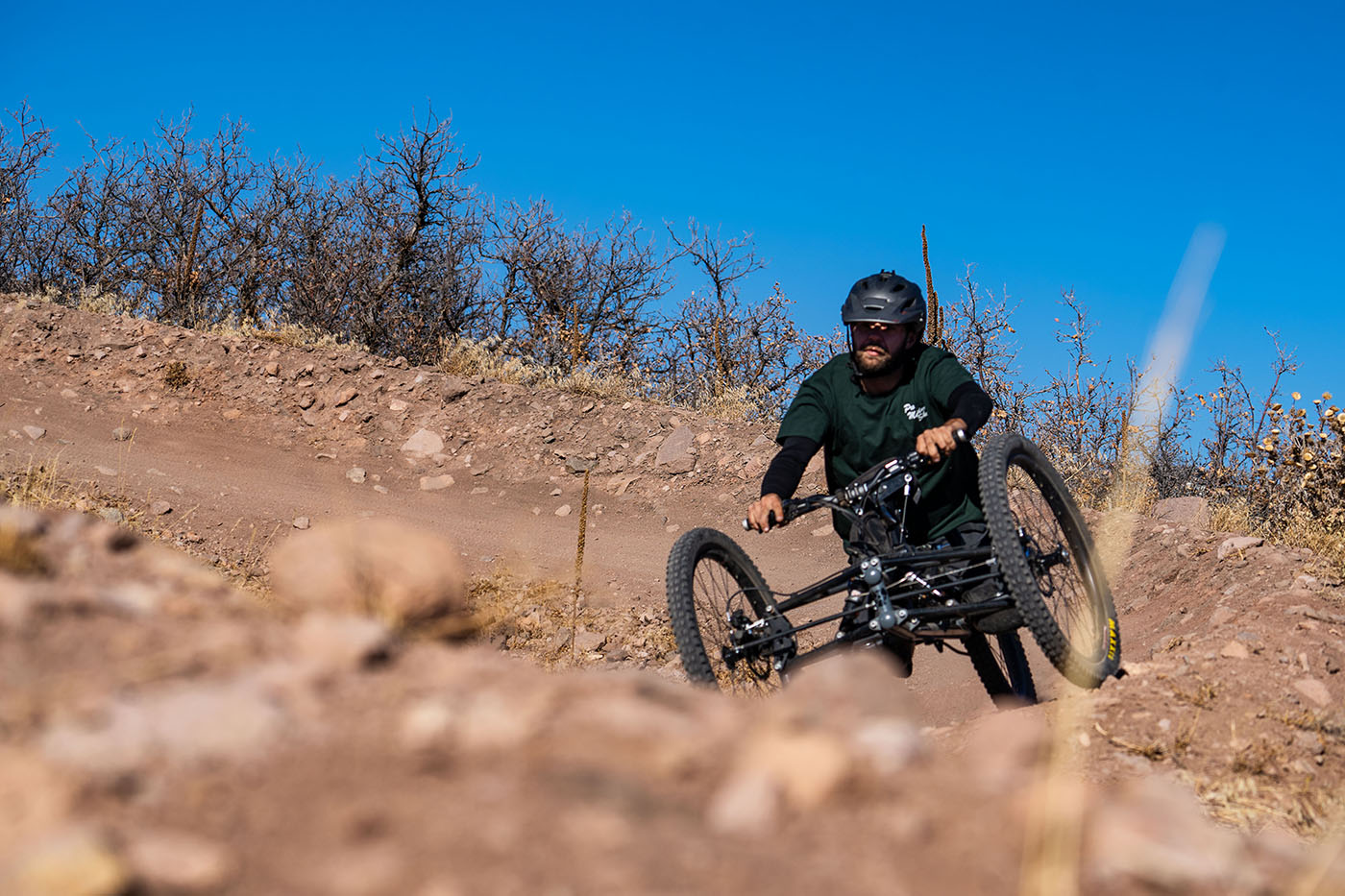
Wasatch Adaptive Sports Rides On
Action Sports
Wasatch Adaptive Sports has been providing adaptive recreation programs for people with disabilities for more than 40 years. In the winter season, WAS offers skiing lessons at Snowbird Mountain Resort seven days a week, and the organization focuses on cycling in the warmer months. When the pandemic put a pause on programming in March 2020, the organization worked quickly to create safe and innovative opportunities for their regular participants to keep moving.
“While we were on hold last spring, we quickly realized that a lot of people who regularly ride bikes with us wouldn’t be able to keep it up if they didn’t have access to equipment,” says Jared Dangerfield, WAS Program Coordinator. “Adaptive bikes are very expensive, and it became clear that we had to find a way to get our bikes back into people’s lives.” WAS soon established a contact-free rental system and lent out up to 20 bikes at a time.
Eventually, it became possible to offer in-person instruction, and WAS was able to return to their favorite cycling routes along the Jordan River Trail. However, as the snowy season approached, WAS again had to come up with clever solutions that would allow their cycling programs to forge on. In past years, WAS has hosted indoor winter cycling sessions in a Murray warehouse, but that wasn’t possible this time around. Instead, Dangerfield and others decided to offer weekly virtual cycling classes throughout the winter.

“It became clear that we had to find a way to get our bikes back into people’s lives.”
As the virtual cycling plan gathered steam, the organization worked fast to distribute equipment and help participants set up exercise stations in their homes. Each rider was fitted with a bike and a stable roller mount to enable stationary cycling. Many of the people who signed up for the virtual lessons were long-time WAS riders, so Dangerfield and co. knew exactly which bike to bring to their houses. From the safety of their respective homes, cyclists between the ages of 20 and 70+ logged on every Monday night for the entire winter season.
“Leading up to the first virtual lesson we thought, ‘This might be pretty weird,’” says Dangerfield. However, as soon as the Zoom cameras turned on, the vibe was pure stoke. “We were blown away with how interactive everybody was,” Dangerfield says. The virtual cycling program offered two essential resources that were difficult to come by during winter lockdown: recreation and human connection. WAS participant Marshall Evans appreciated the physical benefits of the workouts, but mostly he joined in to spend time with his friends. “I love being part of the WAS fam,” says Evans. “It’s a much needed break from life’s stresses.”
With winter 2020/21 in the books, WAS has now returned to the outdoors. “100% of the people who rode with us virtually are going to be riding with us this summer,” says Dangerfield. In an effort to expand their mountain biking programming, WAS will be adopting the Little Valley Trailhead in Draper as a home spot for the season. “There are four different routes to choose from,” says Dangerfield. “We’ll be maintaining those and making sure that adaptive mountain bikers have a positive introduction to the sport.”

“I love being part of the WAS fam.”
To match their growing focus on mountain biking, WAS is actively expanding their fleet of adaptive cycles. “We have bikes of all shapes and sizes,” Dangerfield says. “There are handcycles, foot-pedaled recumbent cycles, two-wheeled upright bikes, and more.” Many of the bikes that WAS owns are highly customizable, and the cycling instructors on staff are able to help riders with various diagnoses and disabilities find the right bike for them. A number of the bikes in the fleet have a built-in electric assist, which is especially useful for adaptive mountain bikers who pedal heavy bikes through rough terrain with their arms and upper body. “An adaptive mountain bike weighs up to 100 pounds,” says Dangerfield, “with the e-assist you can ride for longer, which just means more fun.” In addition to a robust biking schedule, WAS also hosts weekly paddle sports sessions at nearby reservoirs throughout the summer.
All abilities and experience levels are welcome at WAS. Many participants find the organization after a new injury or diagnosis. “I never thought I would have the opportunity to get as active as I have for fun after becoming an amputee,” says Danyale Eckersley. “Being a WAS participant has meant a lot to me.”

Check out the Wasatch Adaptive Sports website (wasatchadaptivesports.org) for updates and access to their monthly newsletter. Summer programs are currently open for registration by phone at 801.834.0476, and scholarship opportunities are available. WAS welcomes help from volunteers, and you don’t need to be an expert in a recreational activity to get involved. Though primarily a locally focused program, WAS’ ultimate aim is to be a force of support for anyone in the adaptive recreation community. “Our doors are always open,” says Dangerfield. “Even if you aren’t participating in our program, we’re happy to be a resource for people with disabilities looking to get outside [and] recreating.”
